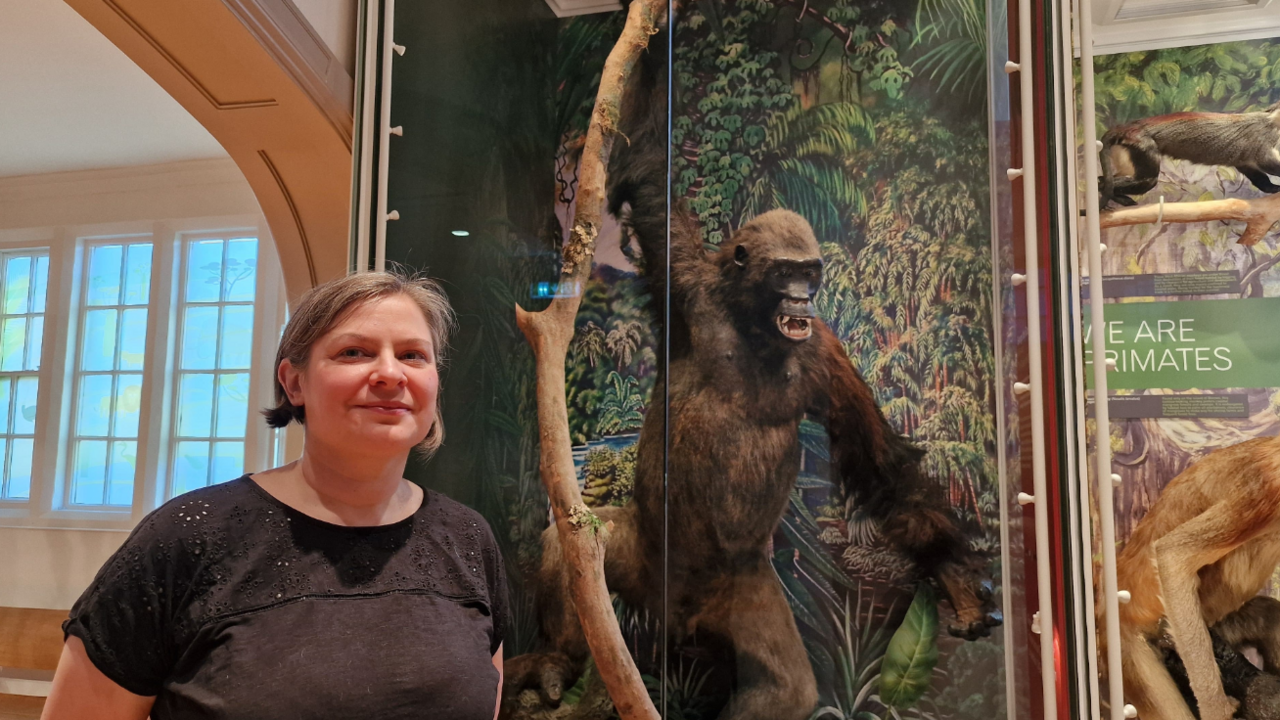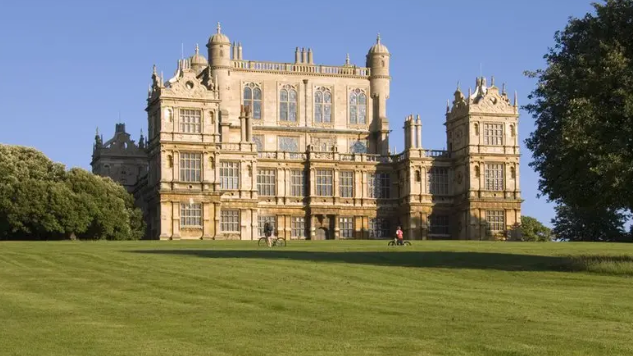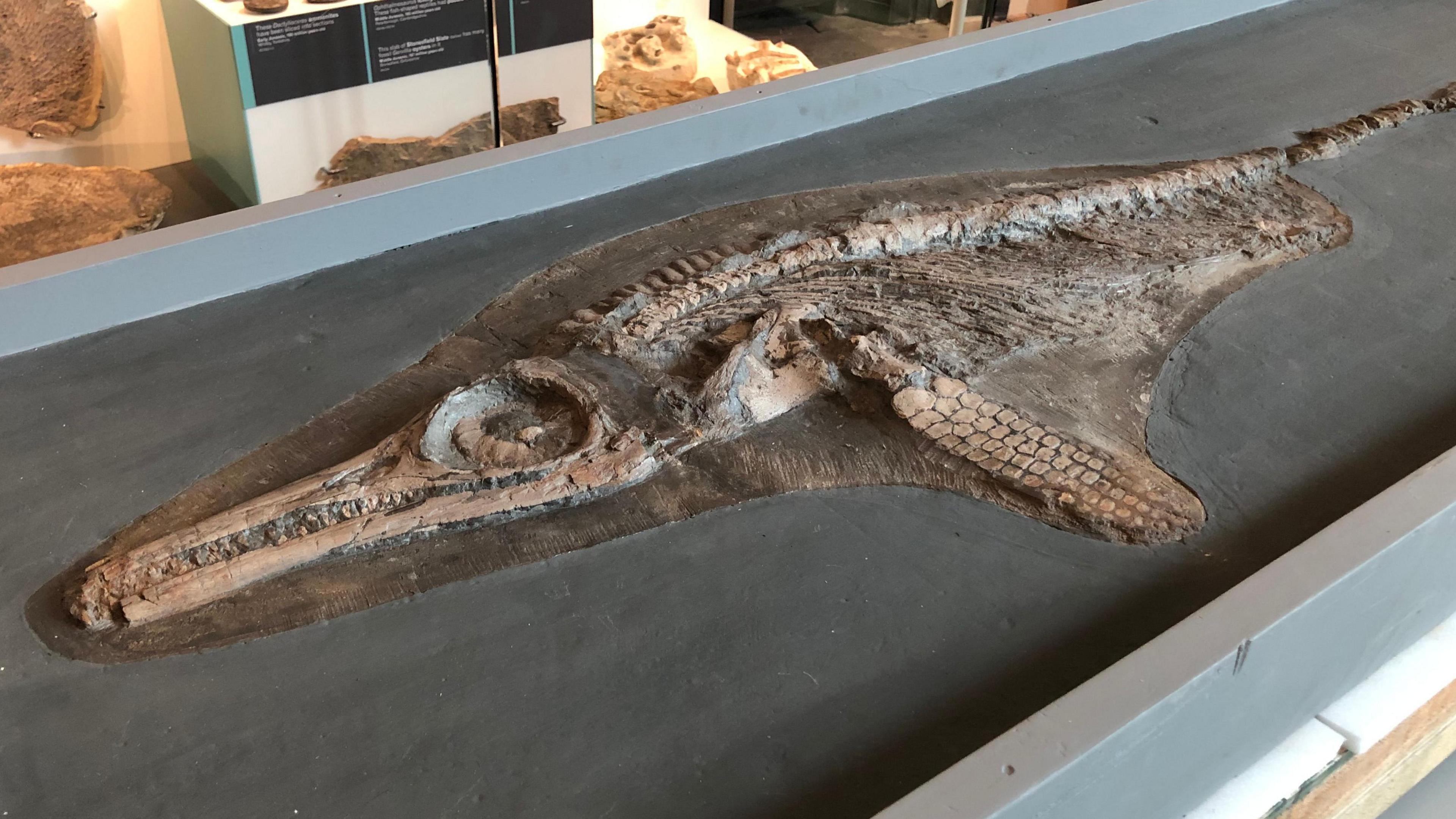Team hopes to trace origins of stuffed gorilla

Dr Holly Miller said George was "a bit of a star" in the local area
- Published
University researchers and scientists are trying to solve the mystery surrounding the origins of a stuffed gorilla.
The primate, named George, is on display at the Natural History Museum at Wollaton Hall, in Nottingham, and has been part of its collection since the 19th Century.
He was one of the first stuffed gorillas brought to Western Europe and became a star attraction on the continent, the Local Democracy Reporting Service (LDRS) said.
However, academics from the University of Nottingham said little was known about his past.

George is on display at Wollaton Hall
The Nottingham Corporation, which preceded Nottingham City Council in governance, purchased George for £100 in 1878 at the Paris Exhibition where he was put on display, the LDRS said.
It is not known where he came from before this and the team, led by Dr Holly Miller from the university's Department of Classics and Archaeology, has been conducting tests to find out.
She said: "We weren't sure if George was one gorilla specimen.
"With taxidermy it's quite normal if there are problems with the skin or individual, they will be patched with other animals, so one or two other gorillas, or potentially something else could be used to mimic gorilla skin.
"There were suggestions it was a goat involved in George, but as far as we can tell from looking at all of his skin, he is an entire gorilla."
DNA tests
Dr Miller said George was "a bit of a star in the local area" and finding out more about him was "important".
She said: "All gorillas come from equatorial Africa, so we know he is from that region somewhere.
"My understanding is he is likely to be a lowland gorilla, not a mountain gorilla, but that still leaves the question whether he is an eastern or western lowland gorilla."
A small piece of skin was taken from the back of George's ankle, alongside a few loose hairs, to analyse his ancient DNA and skin proteins, or collagens.
Swabs of enamel from his teeth were also taken.
Dr Miller said she expected the results to come back within six weeks.
Get in touch
Tell us which stories we should cover in Nottingham
Follow BBC Nottingham on Facebook, external, on X, external, or on Instagram, external. Send your story ideas to eastmidsnews@bbc.co.uk, external or via WhatsApp, external on 0808 100 2210.
- Published16 June 2024
